Some shows left fans begging for more. Others stuck the landing. And a few made one wild, creative leap too many.
7 Shows That Ended Too Soon:
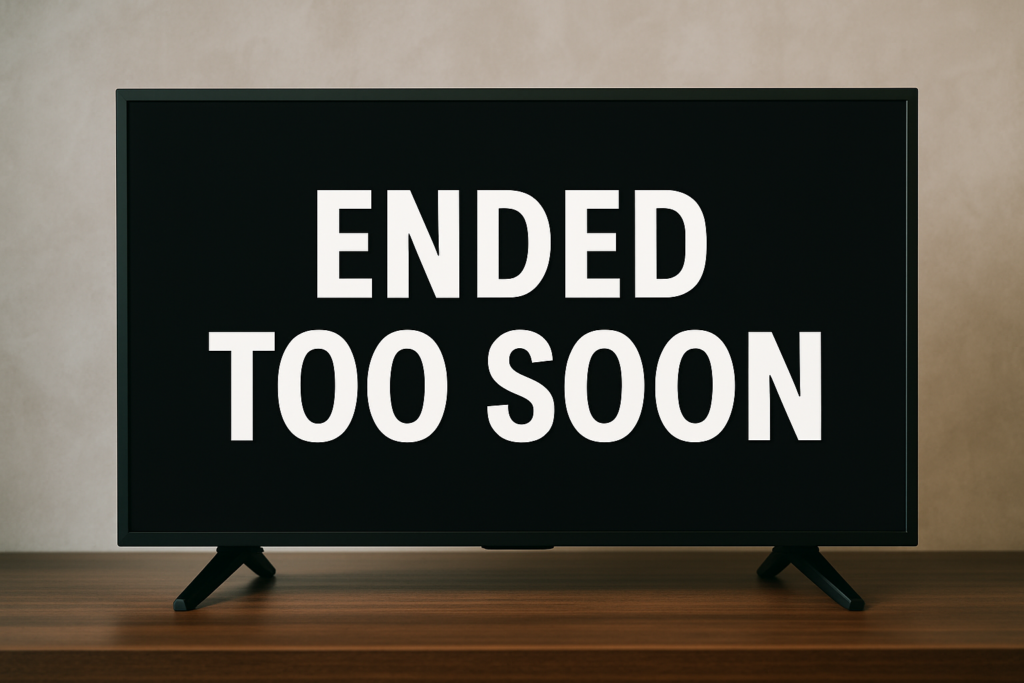
Some series burn bright and fast, gone before most people even knew they existed. These are the shows that critics loved, fans adored, and networks didn’t know how to handle. Whether it was bad scheduling, low ratings, or the fallout from a writers’ strike, each of these gems was cut short before it could reach its full potential. Their premature endings left behind cliffhangers, unfinished arcs, and loyal audiences still mourning what could’ve been. Some of the actors introduced went on to dominate the Hollywood scene. Others built worlds so rich that fans are still begging for reboots or reunions. These shows didn’t just deserve more time; they deserved to thrive.
1. Freaks and Geeks (1999–2000)
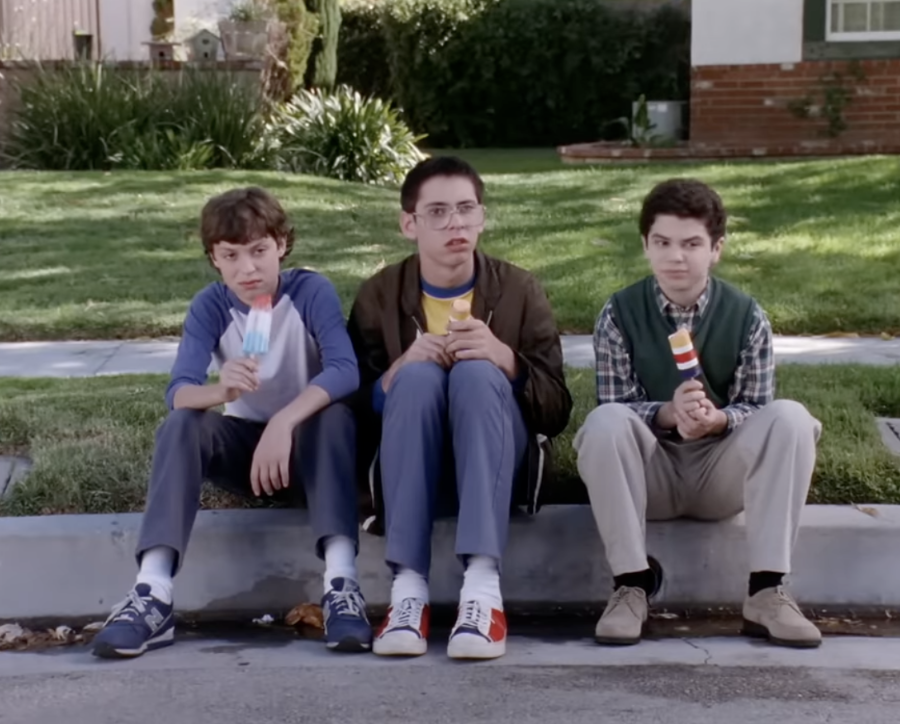
Before binge culture took over, this one-season wonder made a lasting impression with just 18 episodes. Freaks and Geeks captured the awkward, cringey beauty of adolescence with a cast of then-unknowns who’d go on to become household names: James Franco, Seth Rogen, Linda Cardellini, and Jason Segel, to name a few. The writing was heartfelt and brutally honest, and the show never talked down to its teenage audience. It wasn’t glossy, it wasn’t exaggerated, it was just honest, funny, and sometimes painfully accurate.
Despite critical acclaim, NBC canceled the show due to low ratings, leaving its cult following heartbroken. Today, it’s often hailed as one of the best TV shows ever canceled after one season. The characters didn’t get proper closure, but maybe that’s part of the charm. It ended like adolescence does: unfinished, confusing, and weirdly nostalgic. For many fans, it remains the gold standard for short-lived brilliance.
2. My So-Called Life (1994–1995)
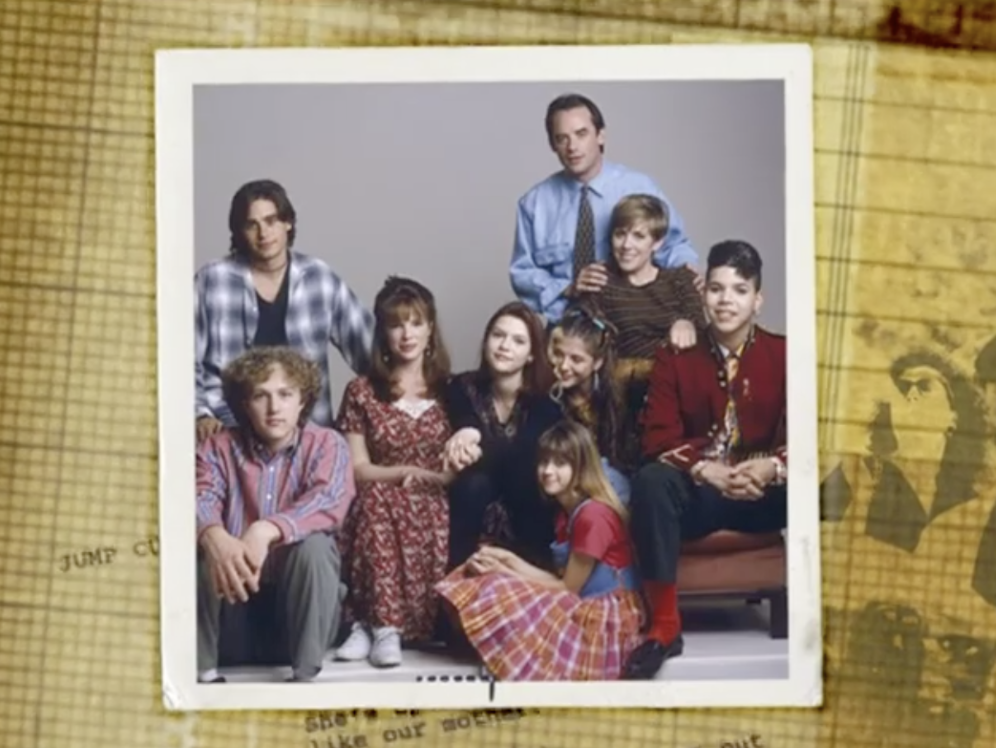
Claire Danes’ breakout role as angsty teen Angela Chase struck a nerve with a generation that didn’t see themselves in glossy, over-scripted teen dramas. My So-Called Life was raw, emotionally intelligent, and beautifully imperfect. It tackled real issues such as homophobia, addiction, identity, and first love with an honesty that felt rare for network television in the ’90s. And then there was Jordan Catalano (Jared Leto), the floppy-haired heartthrob who barely said a word but left an impression anyway.
ABC canceled the show after just one season, even though it earned critical praise and a passionate fan base. The decision came as a shock, and to this day, the unresolved cliffhangers still sting. Angela’s voiceovers and messy thoughts felt like a diary cracked open on screen. While it didn’t last long, My So-Called Life proved that teen dramas could be intelligent, introspective, and worthy of authentic storytelling.
3. Pushing Daisies (2007–2009)
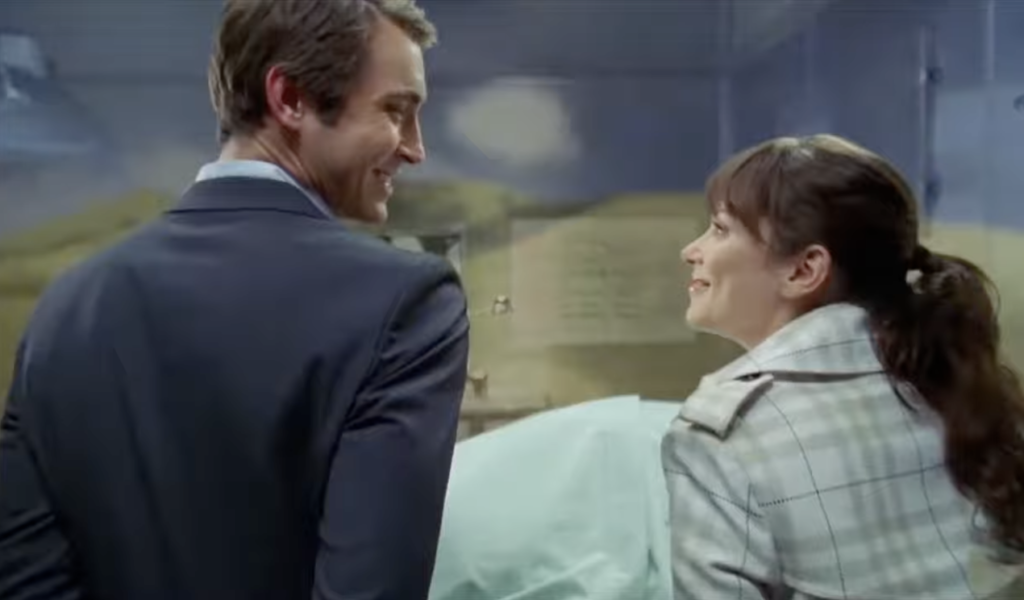
Imagine a crime-solving pie maker who can bring the dead back to life with a single touch. Now mix in candy-colored visuals, fast-paced dialogue, and a swoon-worthy love story that could never be consummated, and you’ve got Pushing Daisies. This whimsical, quirky fantasy series from Bryan Fuller felt like nothing else on TV. It was visually lush, emotionally sweet, and perfectly weird in all the right ways.
Unfortunately, it was also a victim of bad timing. The 2007–08 writers’ strike cut its second season short, and ABC opted not to continue the show. The result? A rushed wrap-up that left fans craving more time in its magical world. Though short-lived, Pushing Daisies became a cult classic and a reminder that creativity doesn’t always get the longevity it deserves.
4. Firefly (2002)
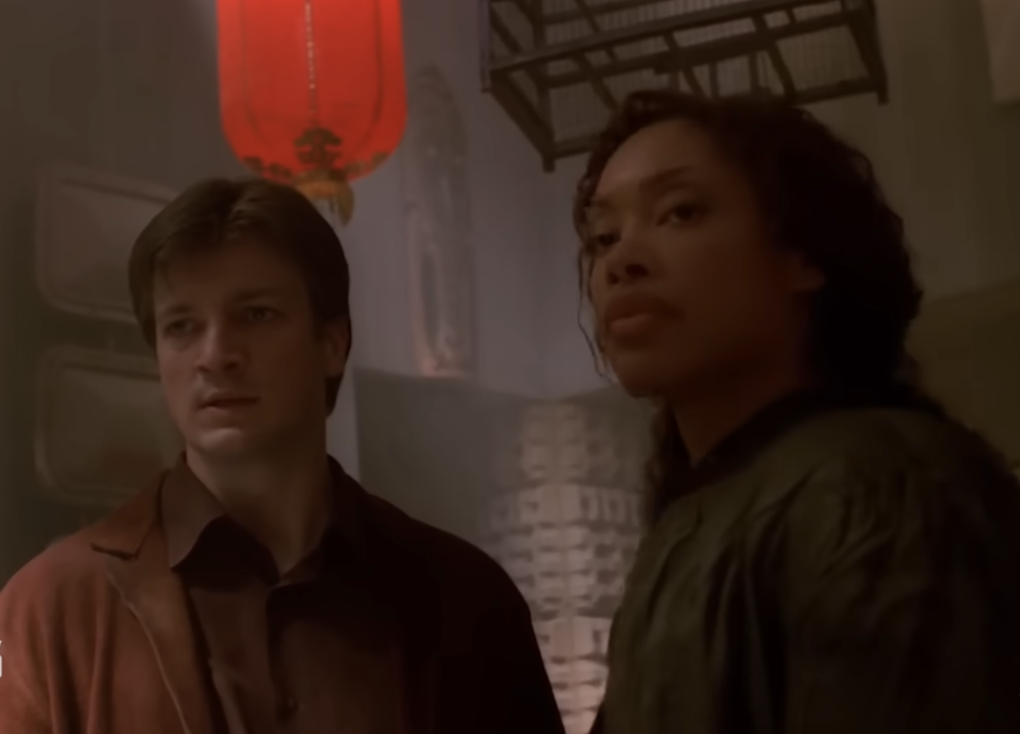
Joss Whedon’s Firefly mashed up space westerns and ensemble drama into something fans still mourn two decades later. With its ragtag crew of misfits navigating a gritty galaxy aboard the Serenity, the show built a compelling universe full of heart, humor, and layered backstories. Nathan Fillion’s Captain Mal became a beloved antihero, and the found-family dynamic struck a chord with viewers.
But Fox fumbled the rollout by airing episodes out of order, giving it a lousy time slot, and pulling the plug after just 14 episodes. Despite the premature end, the fandom never let it die. A 2005 movie (Serenity) offered some closure, but Firefly remains the poster child for shows that were too good for the system they aired on. It deserved a full run and the chance to truly shine.
5. Sports Night (1998–2000)
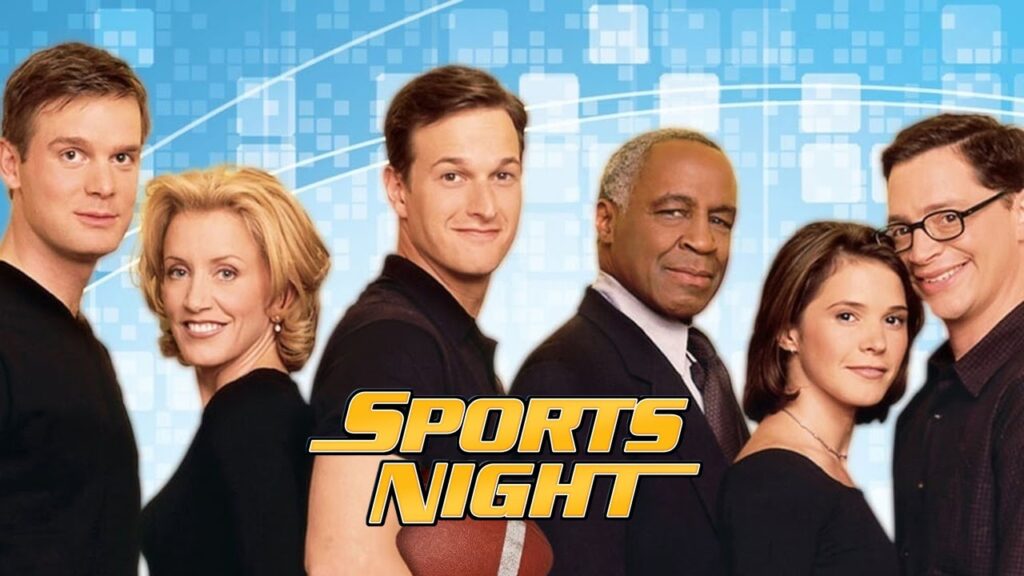
Before The West Wing, Aaron Sorkin brought his fast-talking, idealistic dialogue to the world of sports journalism. Sports Night followed a behind-the-scenes team at a fictional sports network and mixed workplace banter with surprisingly emotional moments. It wasn’t really about sports; it was about people trying to do good work under pressure, often with wit and soul.
Critically praised but constantly struggling with ratings, the show was canceled after two seasons. ABC never quite knew how to market it, and while Sorkin’s writing was ahead of its time, it didn’t have the broad appeal the network craved. Still, fans consider it a hidden gem: a warm, brilliant, emotionally rich series that deserved more room to grow.
6. Farscape (1999–2003)
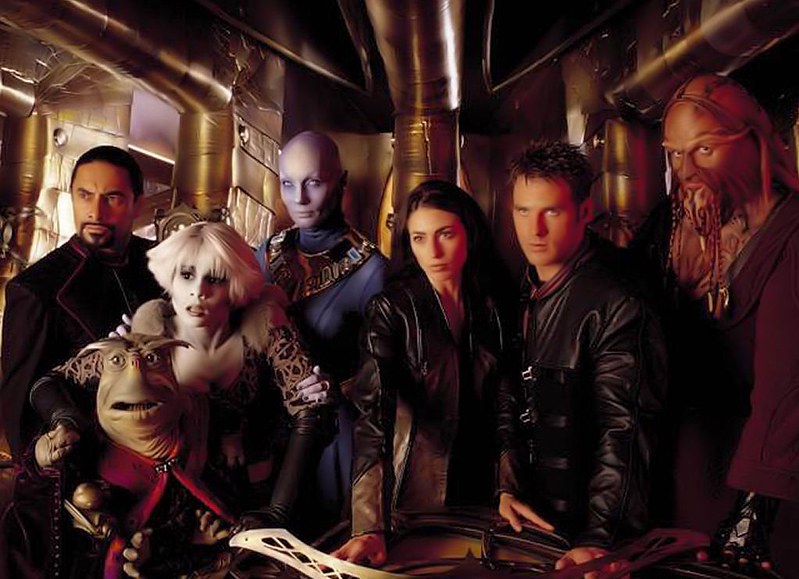
Farscape was a space opera with teeth. This Australian-American co-production followed astronaut John Crichton, flung across the universe through a wormhole and stuck on a living spaceship with a crew of aliens. It was weird, ambitious, and wildly creative, with some of the best creature designs outside of Star Wars, thanks to The Jim Henson Company.
The show built a loyal fan base and was supposed to end with a fifth season, but Sci-Fi Channel unexpectedly canceled it after four, leaving the story unresolved. Fans rallied so passionately that a mini-series (The Peacekeeper Wars) was greenlit to tie things up. It wasn’t perfect, but it gave fans a sliver of closure. To this day, Farscape is a sci-fi legend that proves you don’t have to be mainstream to be magnificent.
7. Undeclared (2001–2002)
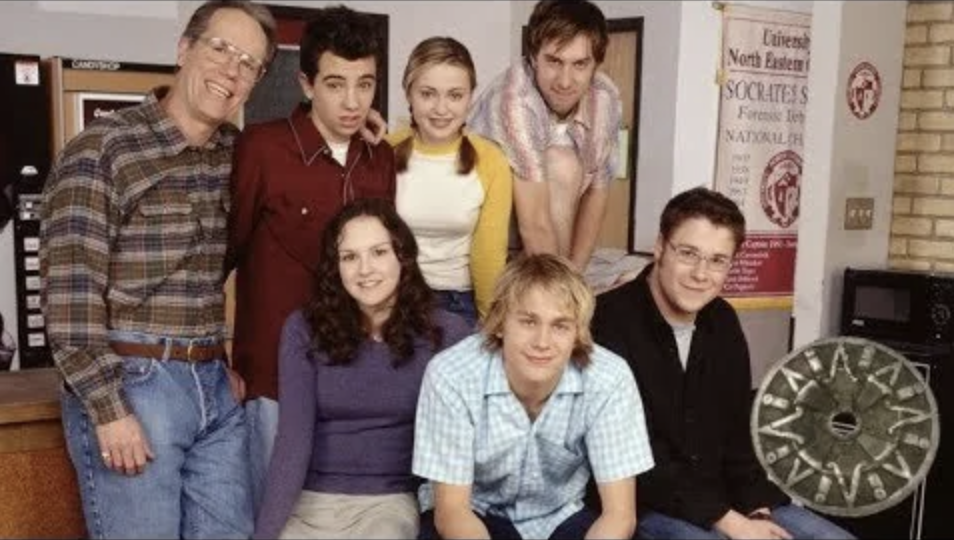
Judd Apatow’s follow-up to Freaks and Geeks took the coming-of-age theme to college, and once again, it was canceled way too soon. Undeclared starred a young Jay Baruchel as a freshman navigating dorm life, awkward hookups, and existential questions with his quirky friends. It was charming, quick-witted, and brimming with rising comedic talent like Seth Rogen and Charlie Hunnam.
Though it had the heart and humor of Apatow’s earlier work, the show didn’t get a chance to find its stride. Fox pulled the plug after one season, leaving fans to imagine what might’ve been. Like its predecessor, Undeclared became a cult favorite, beloved for its authenticity and early glimpses of comedy’s next big stars.
7 Shows That Ended Just Right:
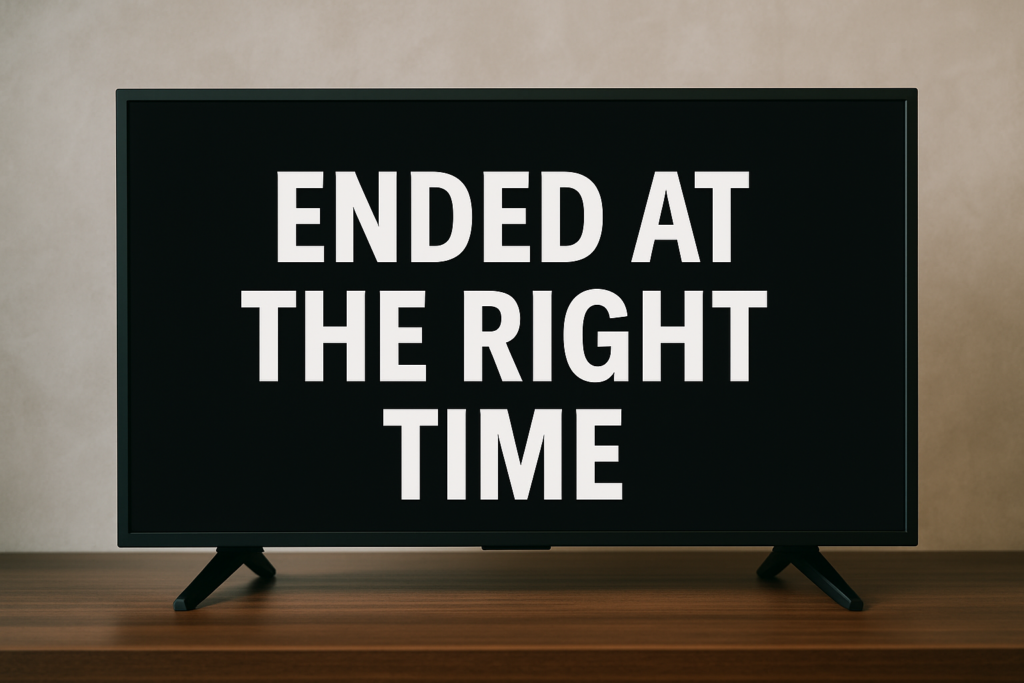
Ending a beloved show is one of the hardest things to get right, but these seven stuck the landing. Whether they wrapped up emotional arcs with grace or offered bold, unconventional conclusions that sparked conversation, each finale felt earned. These series understood when to step away, how to give their characters closure, and what it meant to leave audiences both satisfied and moved. Some delivered haunting final scenes that still live rent-free in our minds. Others quietly passed the torch, reminding us that life, and good storytelling, go on. In a world of shows that drag on too long, these endings were nothing short of masterful.
1. The Sopranos (1999–2007)
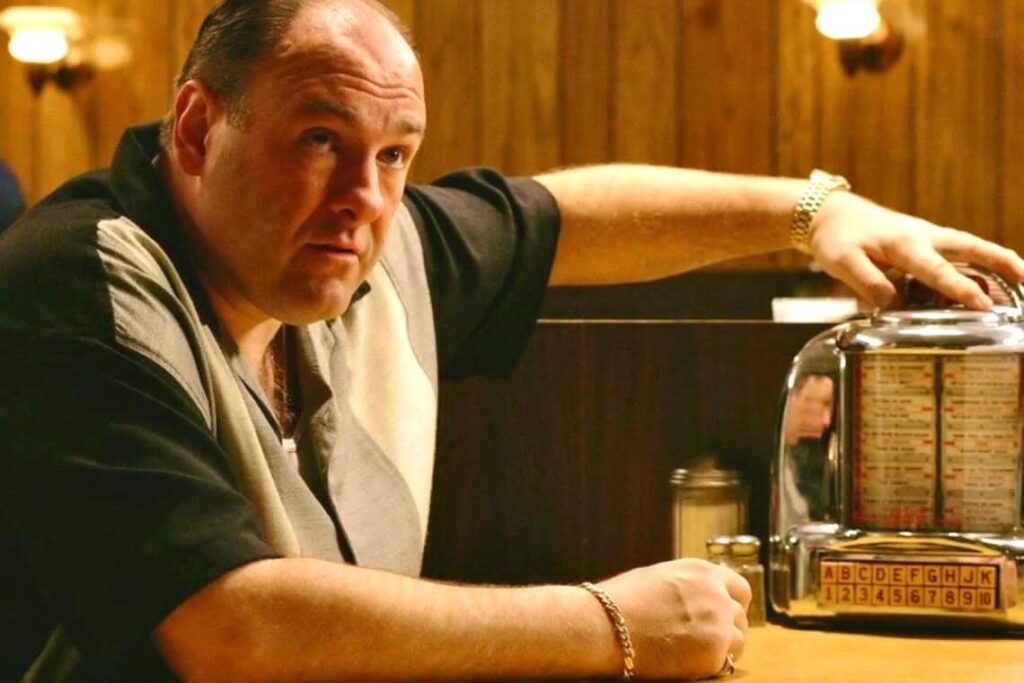
It’s one of the most debated series finales in television history, and for good reason. The Sopranos didn’t offer a dramatic death, a clear resolution, or even a proper goodbye. Instead, it gave us tension, Journey’s “Don’t Stop Believin’,” and a cut to black that sparked countless theories. Was Tony killed? Did life simply go on, always under threat? The ambiguity was maddening, but it was also deeply in line with the show’s tone. David Chase knew that Tony’s story didn’t need a clean end; it needed an honest one.
In hindsight, the finale captured the essence of what The Sopranos was all about: power, paranoia, and the fragility of control. Rather than forcing closure, it let the audience live in Tony’s world one final time, tense, uncertain, and full of dread. It was a finale that respected its characters and trusted its viewers to decide what it all meant. For a show that redefined television, the ending was appropriately gutsy. It didn’t just finish, it lingered.
2. Six Feet Under (2001–2005)

Six Feet Under was always about death, but its finale made life the centerpiece. Over five seasons, the Fisher family helped others bury their loved ones while confronting their own dysfunction, grief, and longing. The show’s final episode, “Everyone’s Waiting,” is widely regarded as one of the best of all time and for good reason. It concludes with a stunning flash-forward montage that shows exactly how each major character dies. Set to Sia’s haunting “Breathe Me,” the scene brought tears, closure, and a sense of full-circle beauty that few series ever achieve.
Rather than shock or twist, the finale offered peace. Every character’s journey was honored, even as it came to a natural end. For a show so steeped in existential questions, this ending provided viewers with a rare emotional payoff that felt well-earned. It was elegant, honest, and devastating in all the right ways. Six Feet Under didn’t just conclude, it celebrated the messy, finite nature of being alive. No final moment has ever felt so complete.
3. The Wire (2002–2008)
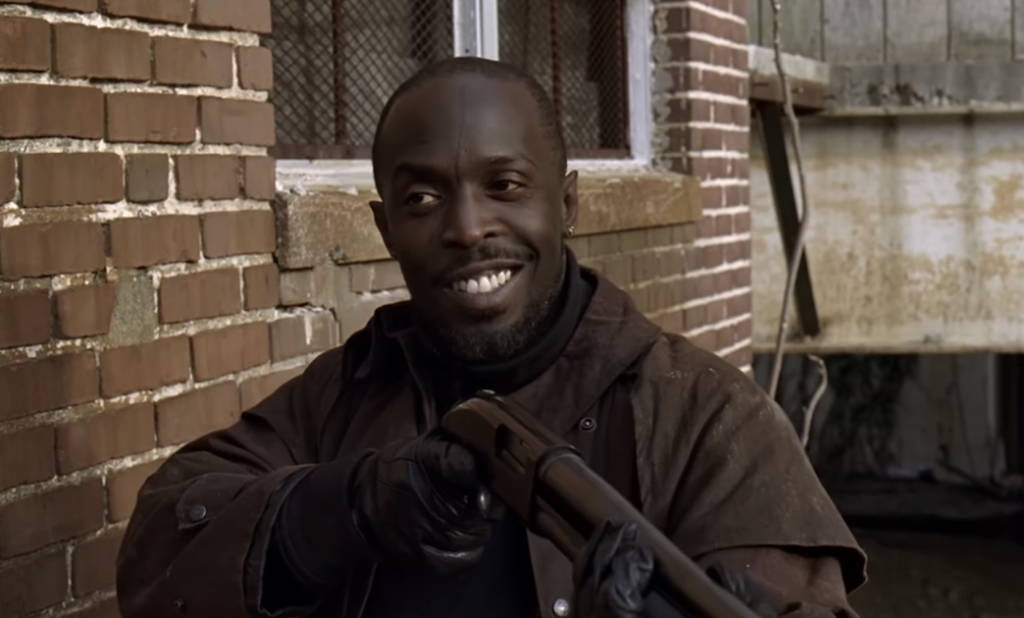
The Wire never pandered to its audience, and its finale was no different. As the show wrapped up its fifth and final season, it didn’t offer heroic victories or satisfying takedowns. Instead, it showed that systems, whether political, educational, journalistic, or criminal, continue to churn, often unchanged. Characters found new roles, both hopeful and cynical, and the city of Baltimore kept moving, just as broken and brilliant as ever. There was no melodrama, no grand speech, just the quiet truth of a world too complex to fix.
The beauty of The Wire’s ending lies in its realism. Instead of wrapping things up with a bow, it gave us echoes and cycles: a new kid on the corner, a new reporter chasing truth, a new corrupt deal. It trusted the audience to recognize progress and decay living side by side. It wasn’t emotionally explosive, but it was intellectually satisfying. In many ways, it was the only ending The Wire ever could have had.
4. Breaking Bad (2008–2013)
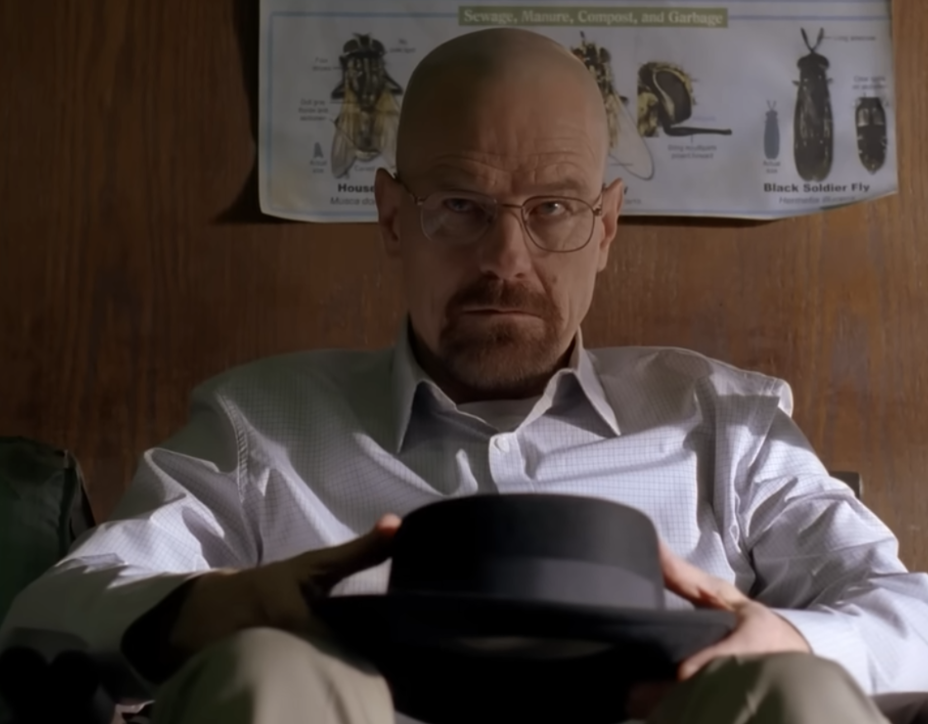
When Breaking Bad ended, it did what few shows ever manage: it pleased almost everyone. Walter White’s descent from mild-mannered chemistry teacher to drug kingpin reached its logical, devastating conclusion. In the final episode, “Felina,” Walt takes out his enemies, secures his family’s financial future, and dies among the tools of his trade. It was brutal, bloody, and poetic. Jesse Pinkman, long suffering and emotionally wrecked, finally gets his shot at freedom. Loose ends were tied, arcs were completed, and tension crackled all the way through the final minute.
What made the ending so impactful was its precision. Vince Gilligan and his team knew exactly where the story needed to go, and they didn’t flinch. Walter didn’t get redemption, but he did get truth, and so did the audience. The finale didn’t try to outdo itself or reinvent the wheel; it simply followed the story to its rightful end. Breaking Bad earned every bit of its praise, and its finale stands as a masterclass in narrative closure.
5. Friday Night Lights (2006–2011)
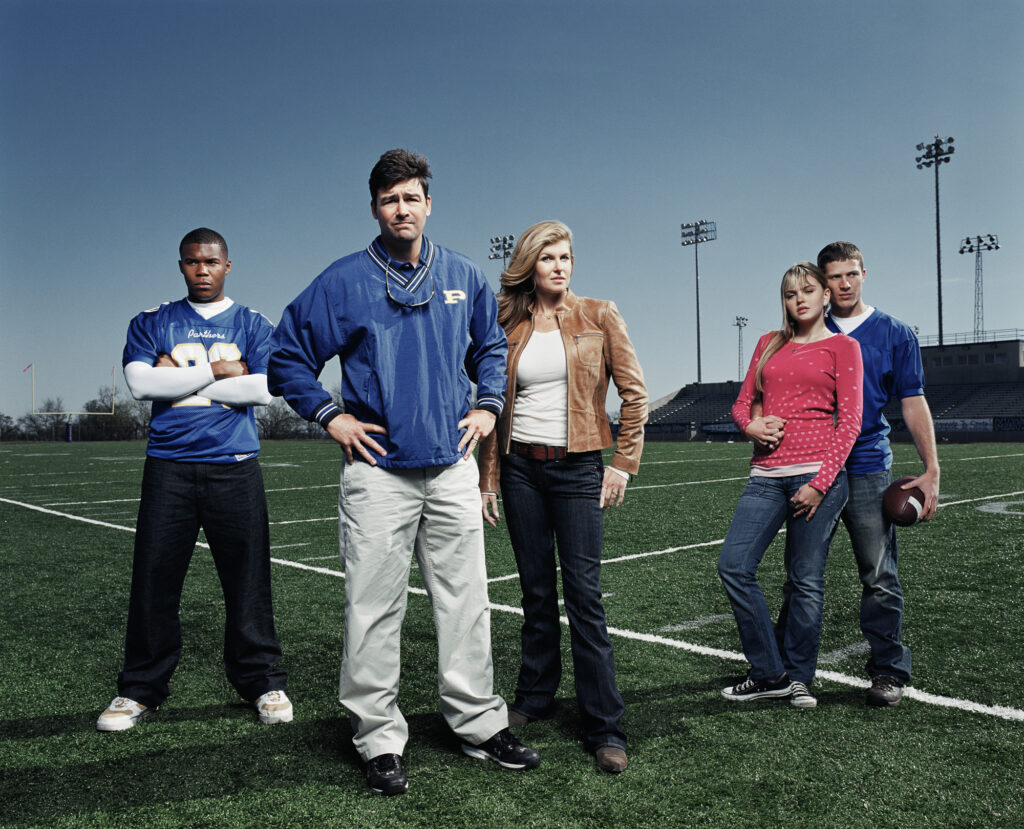
From the very beginning, Friday Night Lights was about more than just football. It told the story of a Texas town, its young people finding their way, and the quiet strength of a coach and his family. The series finale, “Always,” brought it all home. Eric Taylor makes the selfless decision to support his wife’s career for once, moving their family to Philadelphia. The final scenes, set to explosions of light, both literal and metaphorical, are filled with hope, love, and the sense that life goes on, with or without the game.
The show’s final moments didn’t hinge on a championship but on character and growth. Tami Taylor stood in her power, Coach stood by her, and their players stepped into adulthood with newfound purpose. It was emotional without being sentimental. Fans said goodbye not with heartbreak, but with gratitude. Friday Night Lights left its audience with full hearts and clear eyes, just as it promised from the start.
6. The West Wing (1999–2006)
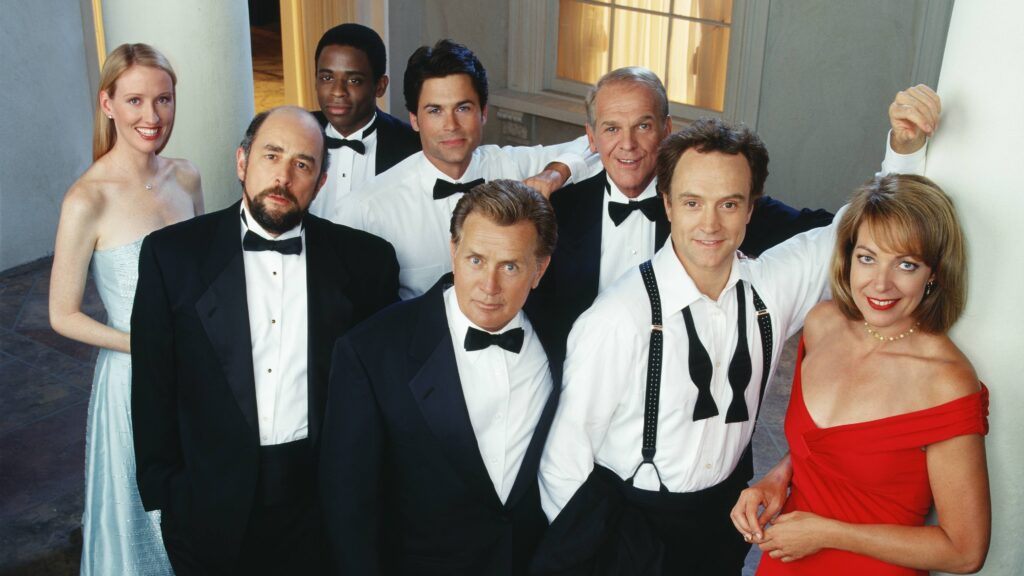
The West Wing was a political fantasy with heart, intelligence, and optimism to spare. After creator Aaron Sorkin’s departure in season four, the tone shifted, but the show regained its footing by focusing on the election to replace President Bartlet. The final season brought in new energy with characters like Matt Santos (Jimmy Smits) and Arnold Vinick (Alan Alda), offering a nuanced look at American politics and leadership. The finale, “Tomorrow,” centered on transition, both in the White House and among beloved characters we’d grown to admire.
It ended not with fireworks, but with grace. Bartlet’s final moments aboard Air Force One, reflective, proud, and quiet, symbolized the show’s enduring message: progress is possible. It honored the presidency, its characters, and its idealism without overstaying its welcome. For a show that inspired hope during turbulent times, The West Wing gave fans one last moment of dignity and purpose. It didn’t just end, it passed the torch.
7. Friends (1994–2004)
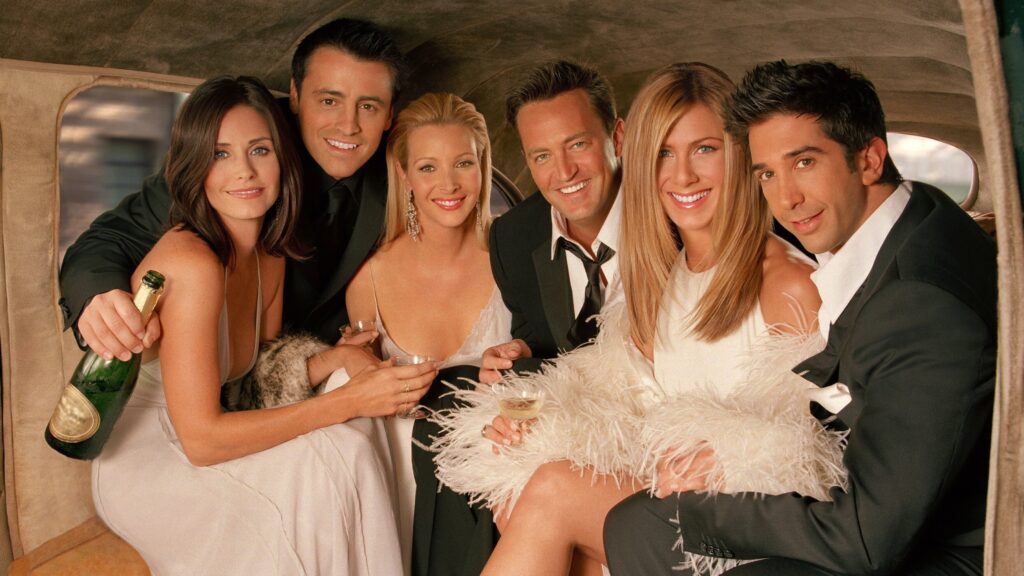
After a decade of laughs, romances, breakups, and hallway banter, Friends knew how to say goodbye. The finale gave fans a gentle and emotionally satisfying sendoff. Monica and Chandler welcomed their surprise twins, Rachel got off the plane, and the gang left their keys behind as they exited the iconic purple apartment one last time. It was simple, heartfelt, and full of the kinds of moments that made the show beloved in the first place.
There were no shocking twists, no devastating goodbyes, just a group of friends moving into their next chapter. The final coffee shop meetup didn’t feel like the end of the story, just the end of a chapter we were lucky to watch. The strength of the finale was in its warmth. It felt like leaving home, knowing you can always revisit. In a TV landscape that often overreaches, Friends ended the way it lived: cozy, sincere, and true to itself.
7 Shows That Jumped the Shark:
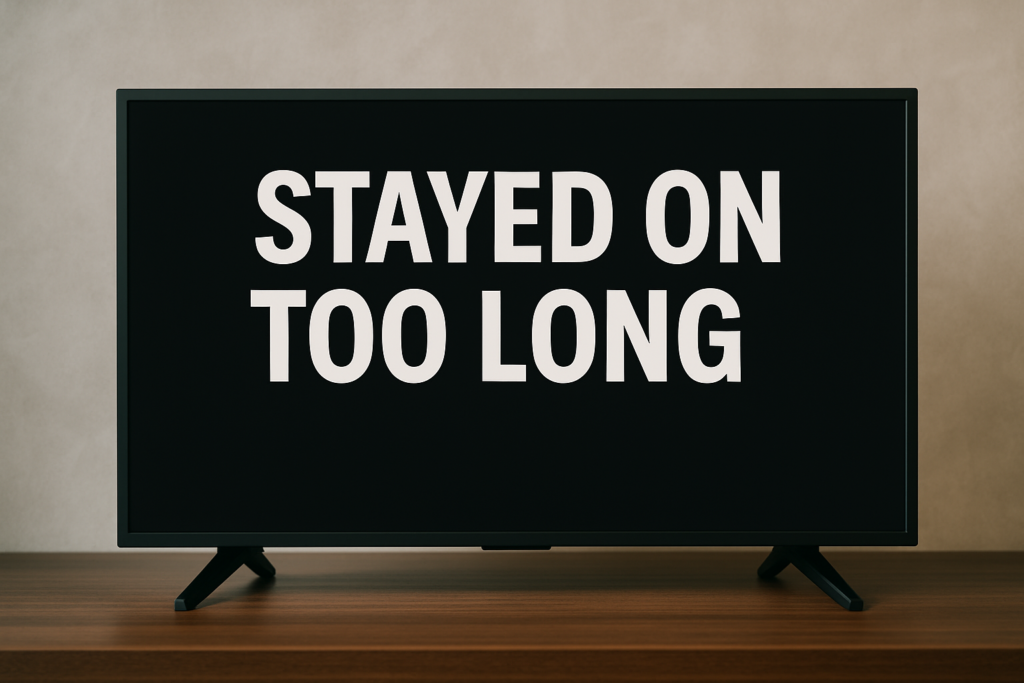
These shows didn’t just run out of steam; they crashed through every red flag on the way down. What started as must-see TV eventually veered into eye-roll territory, either by losing key cast members, embracing over-the-top plotlines, or forgetting what made the show work in the first place. Whether they outlived their creative spark or stumbled into chaos trying to top themselves, each show here had a turning point, a moment fans knew it had gone too far. Some still had glimmers of greatness. Others became cautionary tales. But all of them prove the same truth: knowing when to end is just as important as knowing how to begin.
1. Dexter (2006–2013)
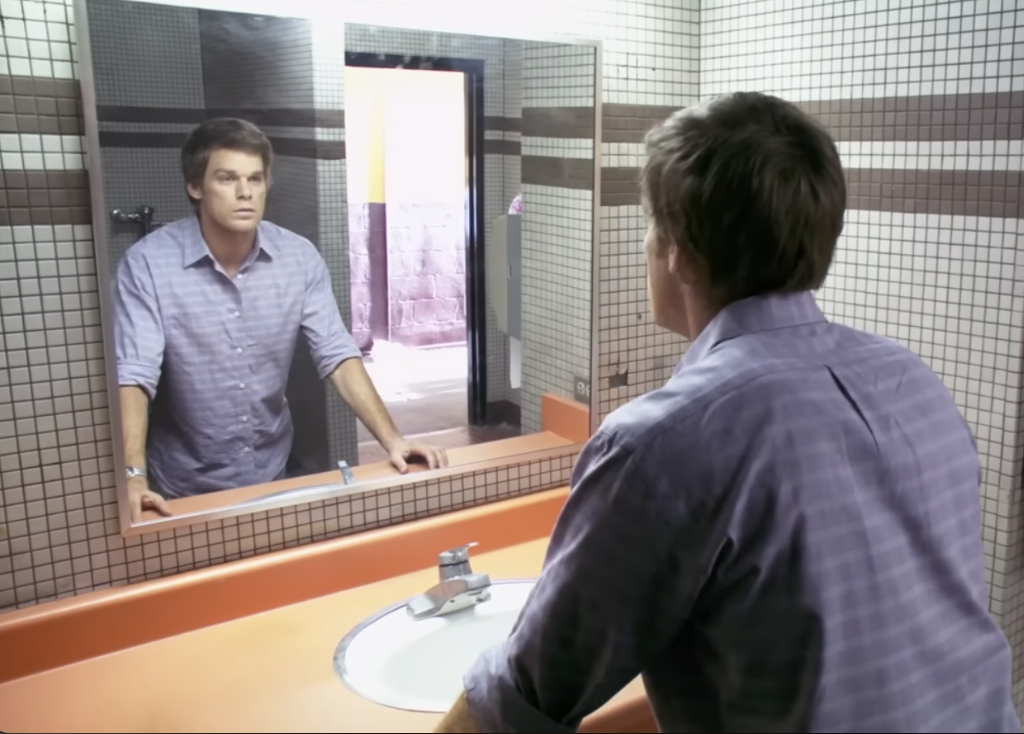
When Dexter debuted, it felt like lightning in a bottle. A forensic blood analyst who moonlighted as a vigilante serial killer? It was edgy, provocative, and anchored by Michael C. Hall’s hauntingly brilliant performance. For four seasons, it danced on the edge of morality with thrilling results. However, the show gradually lost its narrative sharpness, introducing increasingly implausible plotlines and character arcs that contradicted earlier developments. By the final seasons, the writing felt chaotic, and Dexter’s choices became harder to justify, even within his own twisted logic.
Then came the finale, and with it, one of the most widely panned endings in TV history. Rather than give Dexter a meaningful end, the show faked his death and inexplicably exiled him to a solitary lumberjack life. Fans were stunned, and not in a good way. A character study that once felt dangerous and profound dissolved into incoherence. Even a 2021 sequel series (New Blood) couldn’t fully repair the damage. Dexter didn’t just jump the shark; it chainsawed it.
2. Lost (2004–2010)
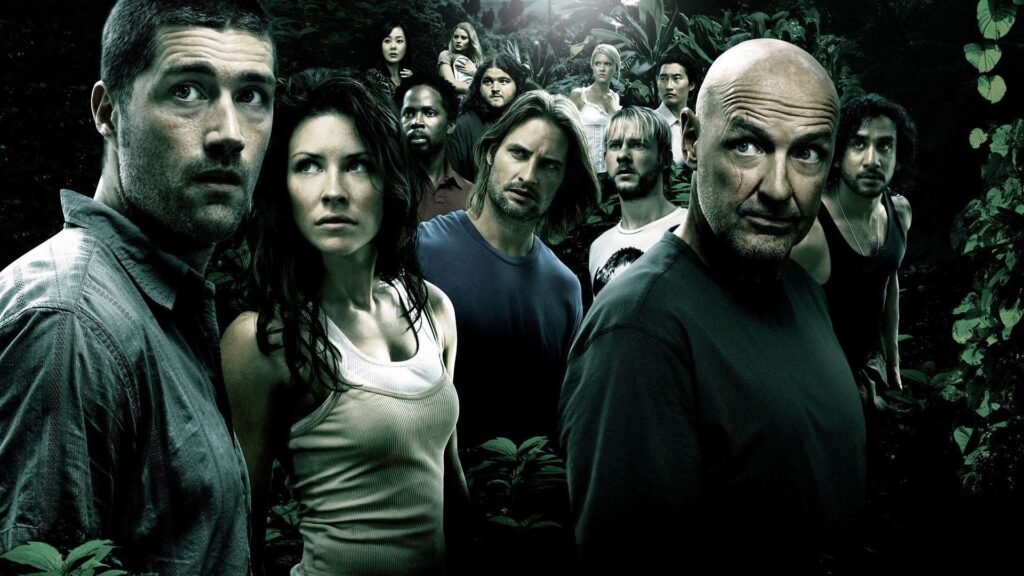
At its height, Lost was the definition of appointment television. Its mysterious island, shifting timelines, and eerie clues kept fans glued to message boards and rewinding DVRs. The ensemble cast was compelling, the stakes were high, and every episode promised new secrets. But as the seasons progressed, the show kept adding layers of mythology without ever peeling them back. Polar bears, smoke monsters, a magical cork holding evil at bay it started to feel like a puzzle the writers themselves hadn’t solved.
By the time the finale aired, expectations were sky-high and satisfaction was low. Instead of clear answers, viewers got a metaphysical epilogue set in a purgatory-like “flash-sideways” world. Emotional beats landed for some, but others felt duped after years of unresolved mysteries. Lost proved that a compelling journey can still disappoint if the destination feels unearned. Its fall from brilliance to bafflement remains one of TV’s most talked-about flameouts.
3. That ’70s Show (1998–2006)
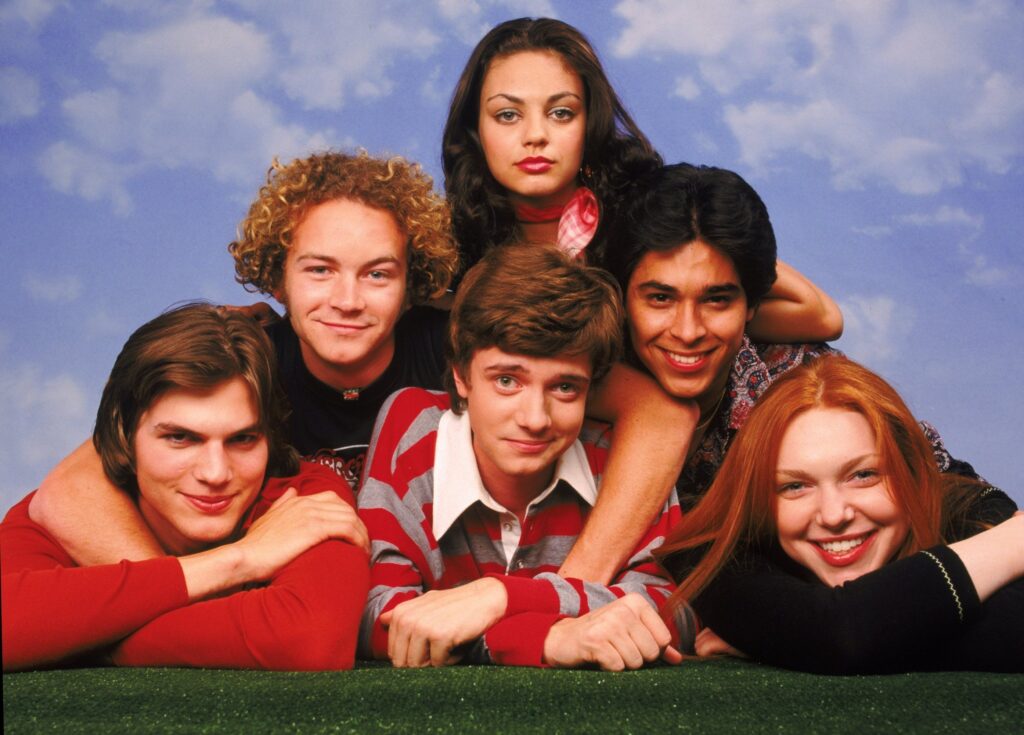
For its first few seasons, That ’70s Show was a fresh, funny, and nostalgic sitcom that clicked thanks to a perfect cast and sharp writing. The chemistry between the original characters, especially Topher Grace’s Eric and Laura Prepon’s Donna, grounded the show’s goofy stoner humor in something real. Eric’s basement became iconic, and the circle scenes were sitcom gold. The show blended teen awkwardness and ’70s kitsch with unexpected heart.
But when Topher Grace and Ashton Kutcher left in season 7, the energy shifted. Their replacements failed to capture the same charm, and the writing leaned into tired gags and weak romantic subplots. What had once been effortlessly funny became hollow. By the final season, even longtime fans were just waiting for the nostalgia train to pull into the station. The finale tried to tie things up, but it couldn’t undo the damage. That ’70s Show didn’t know when to say goodbye, and the delay cost it dearly.
4. Heroes (2006–2010)
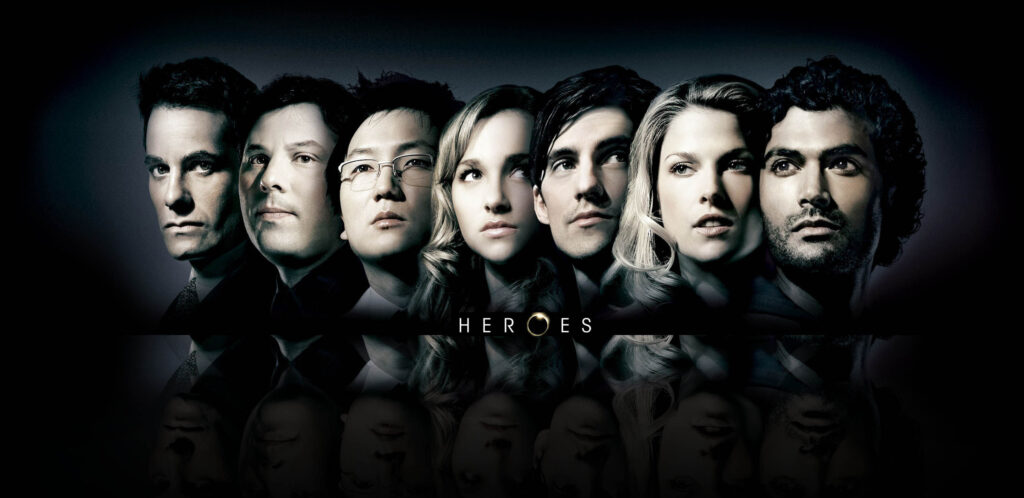
The first season of Heroes was nothing short of electric. Ordinary people discovering extraordinary abilities, mysterious connections, and an apocalyptic vision of the future made it thrilling and tightly plotted. With standout characters like Hiro, Claire, and Sylar, the show created a world that felt expansive yet intimate. “Save the cheerleader, save the world” became a cultural mantra. But then the second season hit, and it was clear the magic was already slipping away.
The writers’ strike shortened season two, but that wasn’t the only issue. Plots meandered, timelines fractured, and character development fell apart. By the time season four rolled around, the show had completely lost its sense of direction. Once-promising heroes were reduced to confusing arcs and repetitive dilemmas. NBC tried a revival with Heroes Reborn in 2015, but it failed to rekindle interest. A classic case of too much too fast, Heroes went from super to super disappointing.
5. Nip/Tuck (2003–2010)
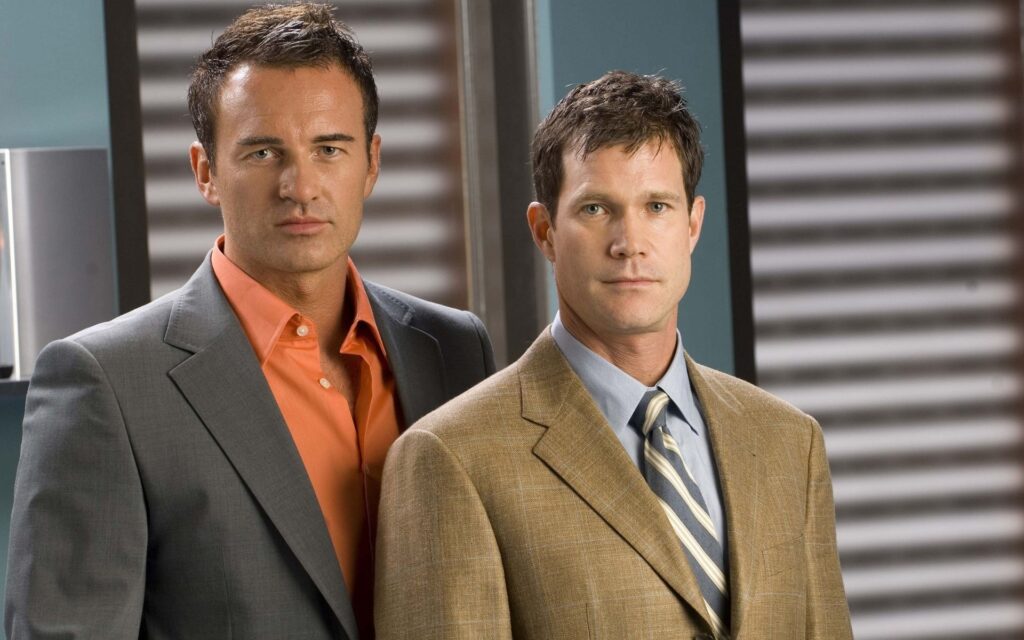
When Nip/Tuck premiered, it was brash, bold, and willing to go where no medical drama had gone before. Set in a Miami plastic surgery clinic, the show explored vanity, desire, and identity with surgical precision. Julian McMahon and Dylan Walsh brought heat and complexity to their roles, and the early seasons balanced shock with substance. It wasn’t just sexy, it was smart, stylish, and subversive.
But as time went on, the show turned into a soap opera fever dream. Storylines became increasingly absurd: serial killers, stolen babies, organ harvesting, you name it. What had once pushed boundaries started chasing them, and the show’s sense of satire was buried under chaos. By the time it ended, Nip/Tuck had lost all nuance and much of its audience. It went from edgy prestige drama to wild tabloid parody, and the transformation wasn’t pretty.
6. Gilmore Girls (2000–2007)
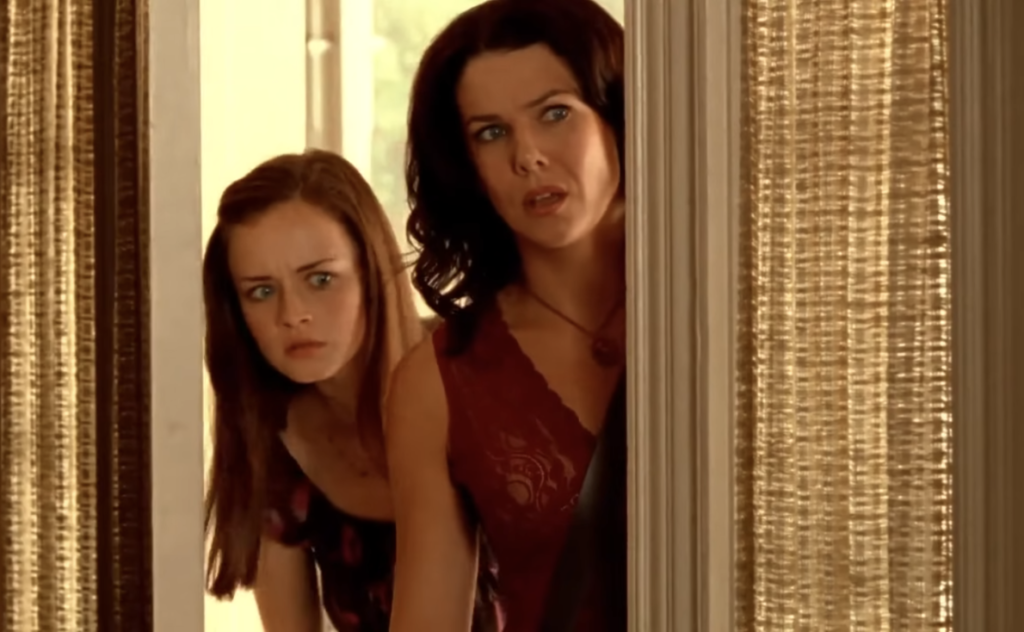
For six seasons, Gilmore Girls delivered a perfect blend of fast-talking wit, pop culture references, and heartfelt mother-daughter bonding. Creator Amy Sherman-Palladino’s signature voice gave Stars Hollow its magic, and the chemistry between Lauren Graham and Alexis Bledel made the show’s emotional core shine. Rory’s coming-of-age, Lorelai’s romantic entanglements, and the town’s quirky ensemble made for endlessly rewatchable TV.
Then, in season 7, Sherman-Palladino departed, and it showed. The pacing shifted, the dialogue dulled, and beloved characters started acting out of character. The final season lacked the spark and cohesion that had defined the series. A 2016 Netflix revival tried to right the ship with four seasonal episodes, but even that had a divisive cliffhanger ending. Gilmore Girls didn’t crash and burn, but it definitely wobbled over the finish line. Without its creator’s guiding voice, the show’s last act felt like a missed opportunity.
7. Weeds (2005–2012)
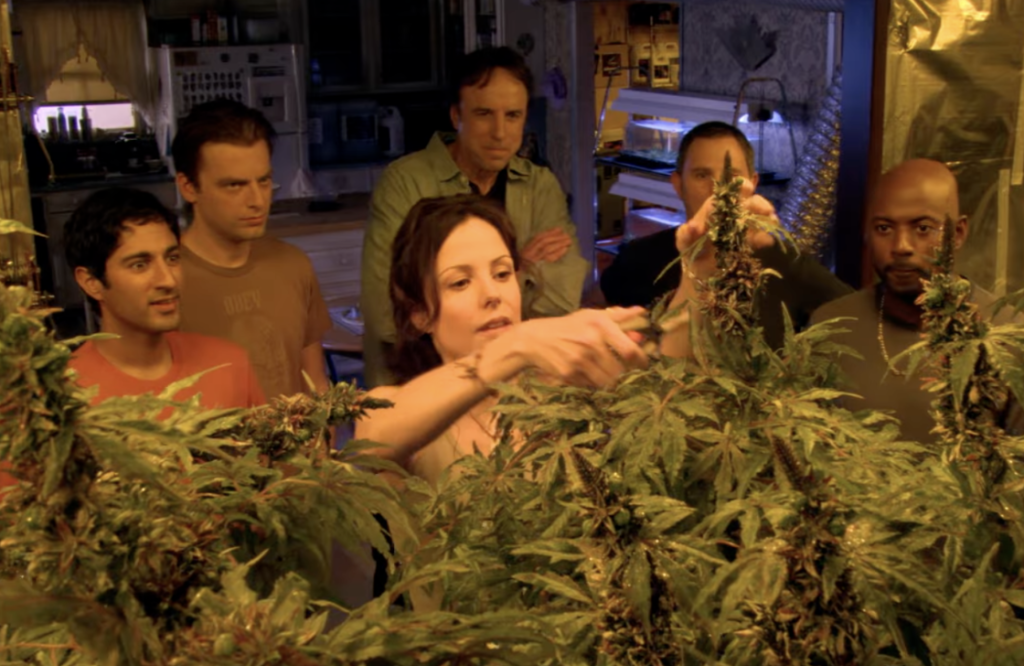
Weeds began as a sharply observed satire about a suburban widow who turns to drug dealing to support her family. Mary-Louise Parker was magnetic as Nancy Botwin, and the early seasons cleverly exposed the cracks beneath cookie-cutter suburbia. With its dark humor, timely social commentary, and stylish direction, Weeds stood out as one of Showtime’s boldest originals.
But once the show left the cul-de-sac, things got… weird. Nancy’s journey took her from PTA meetings to international drug cartels, and the plot turned increasingly implausible. The tone grew erratic, sometimes dark and dramatic, other times cartoonishly absurd. By the final season, Weeds bore little resemblance to what it once was. The finale tried to reflect on how far everyone had come (or fallen), but by then, many fans had checked out. What started smart and subversive ended bloated and directionless.
This story, 21 TV Shows from the ’90s and 2000s That Deserved More, Ended on a High, or Went Totally Off the Rails was first published on dailyfetch.net.


